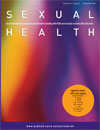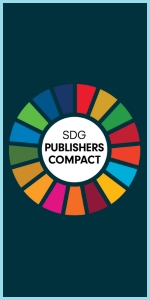
Sexual Health
Volume 8 Number 4 2011
HIV and Aging
SH11110HIV and aging: an overview of an emerging issue
Age related morbidity among people living with HIV has increased as people with the virus live longer. This introduction provides an overview of all the articles which cover a spectrum of issues including particular diseases, the science of immunosenescence and the psycho-social challenges of ageing with HIV. It considers whether a syndrome of accelerated ageing exists among people with HIV finding that evidence is currently lacking to support this theory.
SH11028 HIV infection and aging of the innate immune system
Although improved treatments have led to an increased life expectancy for HIV-positive individuals, these patients remain at an increased risk of age-related diseases. Recent evidence suggests HIV may prematurely age immune cells, leading to immune dysfunction and disease. This review focuses on the impact of HIV infection on the function and ageing of innate immune cells and discusses potential drivers of premature immunosenescence.
SH11020 HIV infection, aging and cardiovascular disease: epidemiology and prevention
SH11020 Abstract | SH11020 Full Text | SH11020PDF (260 KB) Open Access Article
SH10146 HIV-associated kidney disease in the context of an aging population
SH11014 HIV infection and bone disease: implications for an aging population
This review will detail the epidemiology, pathogenesis, diagnosis and management of osteoporosis and low bone mineral density in HIV-infected patients, with particular emphasis on aging..
SH11041 Sexual function and dysfunction in older HIV-positive individuals
SH11027 Sexually transmissible infections in aging HIV populations
SH11048 HIV, cancer, and aging
SH11046 Life expectancy of HIV-positive adults: a review
Compared with the general population, HIV-positive individuals experience reduced life expectancy. Nevertheless, patients starting antiretroviral therapy early in the course of HIV-infection and attaining restoration of a normal CD4 count may have a near normal lifespan. Improvements in treatment imply that increasing numbers of HIV-positive individuals will live to older age. Late diagnosis and presentation to care and treatment not concordant with guidelines contribute to reducing life expectancy.



